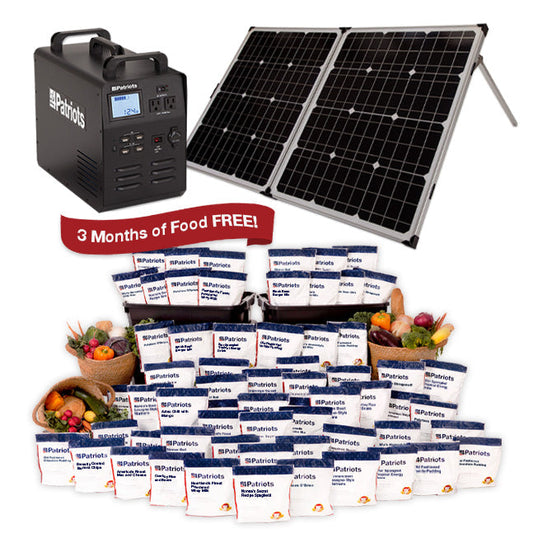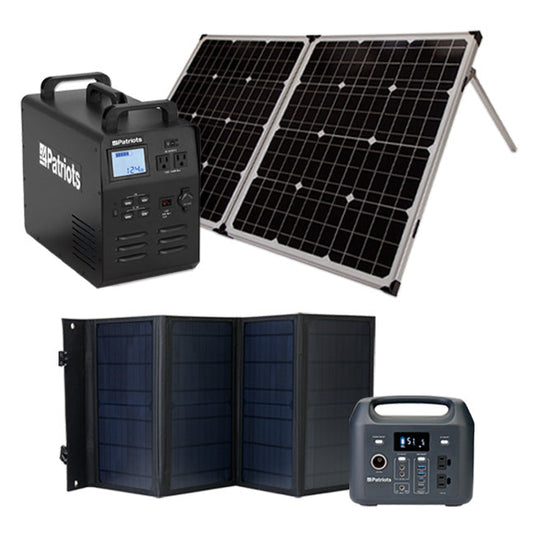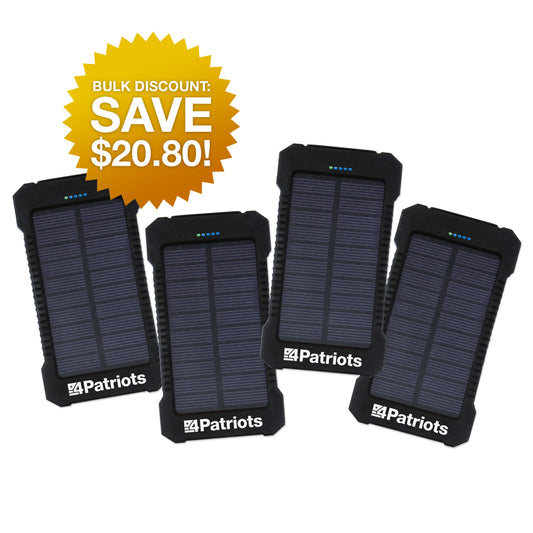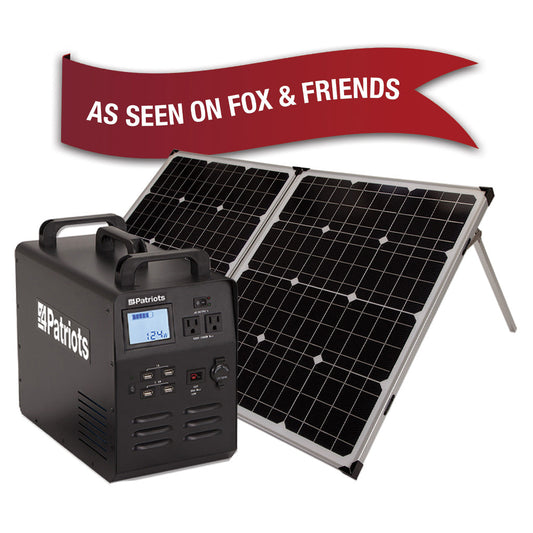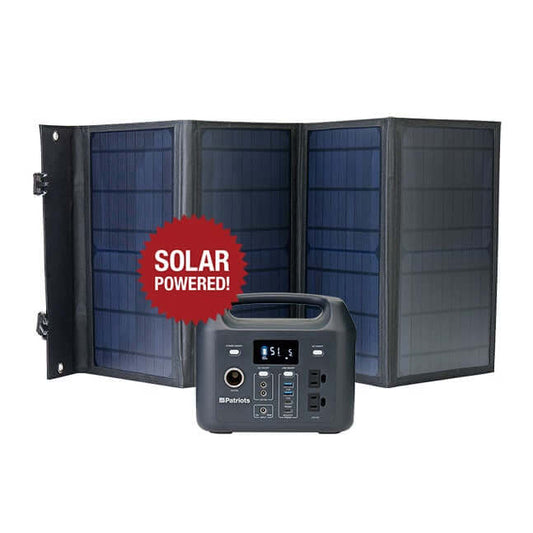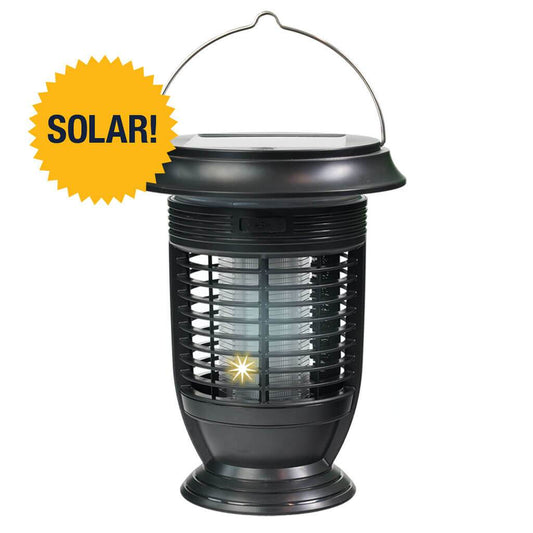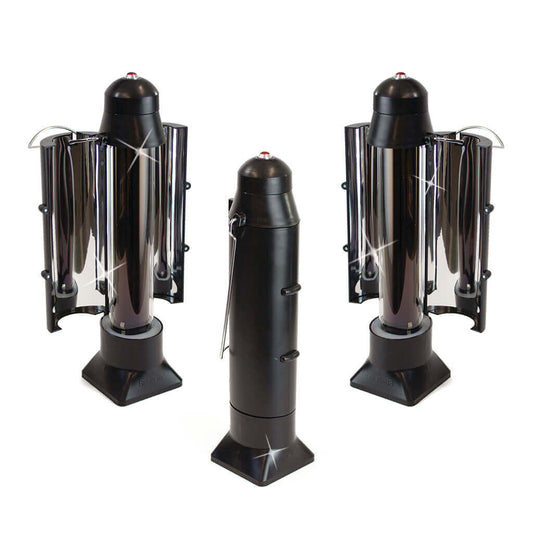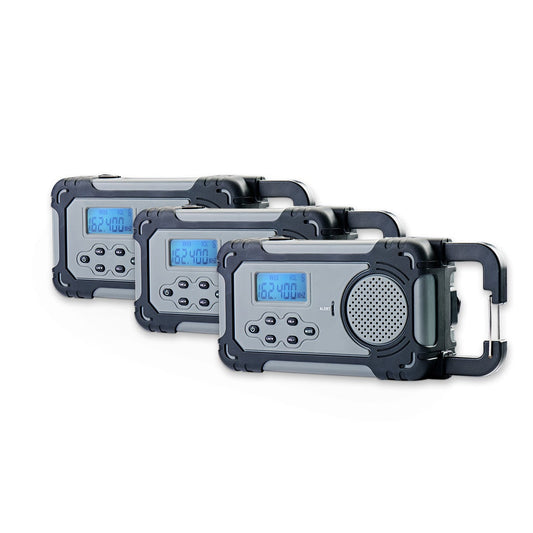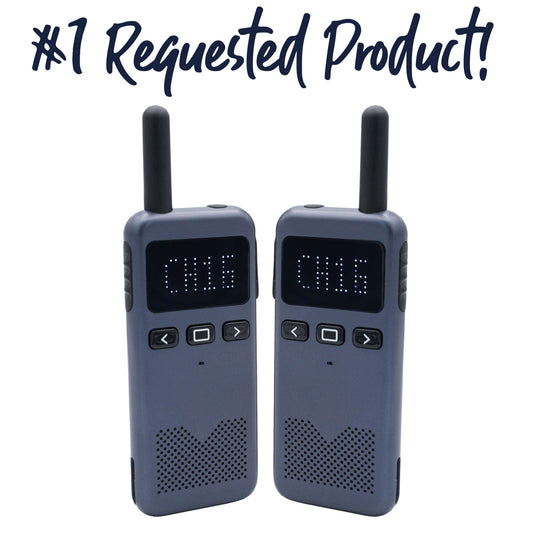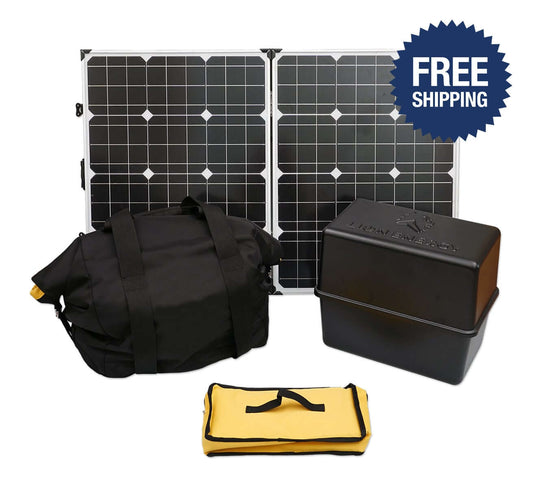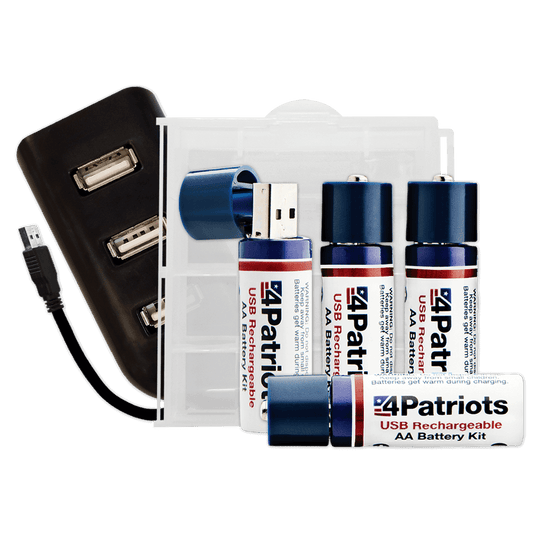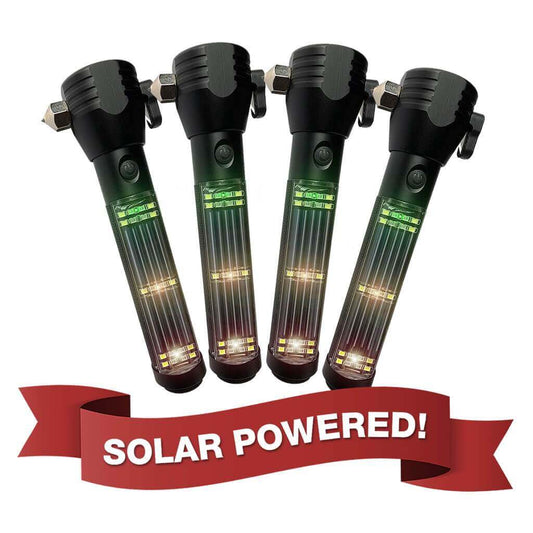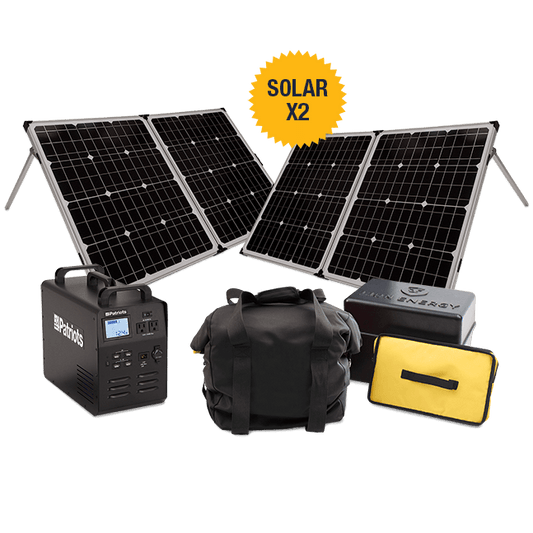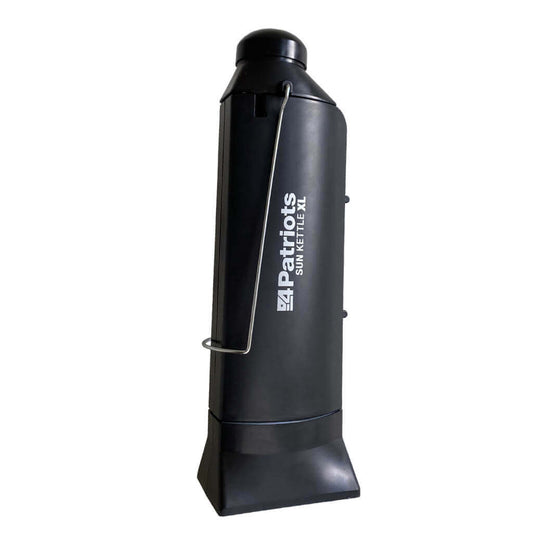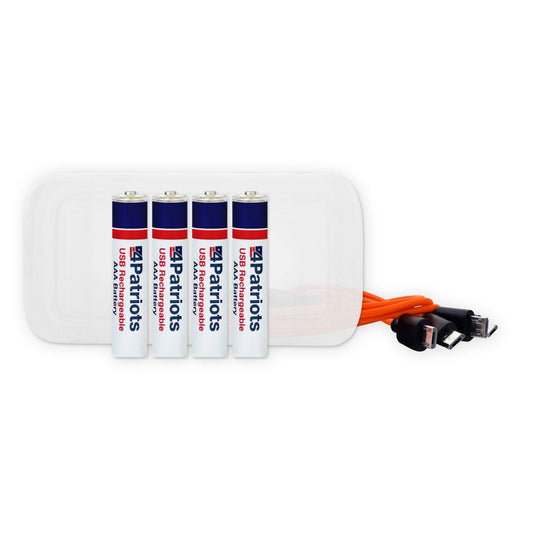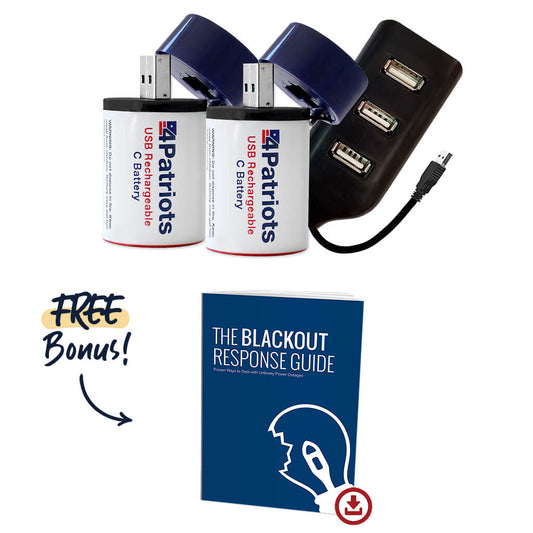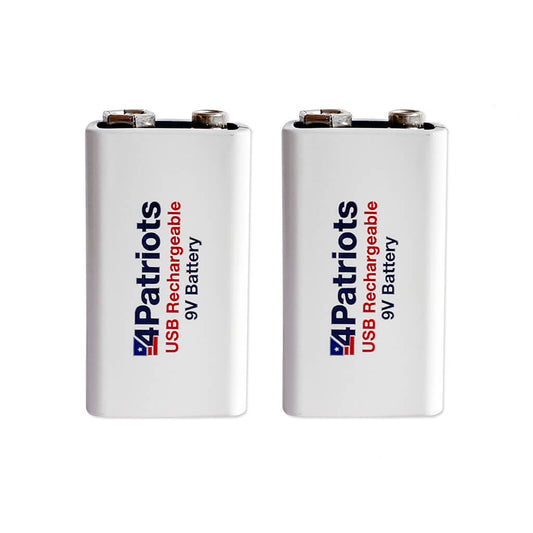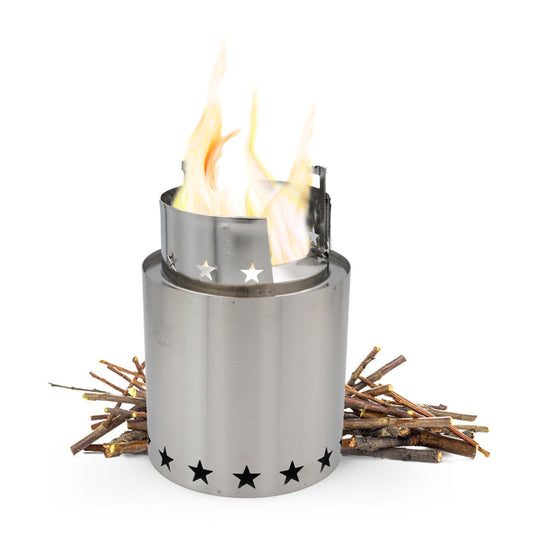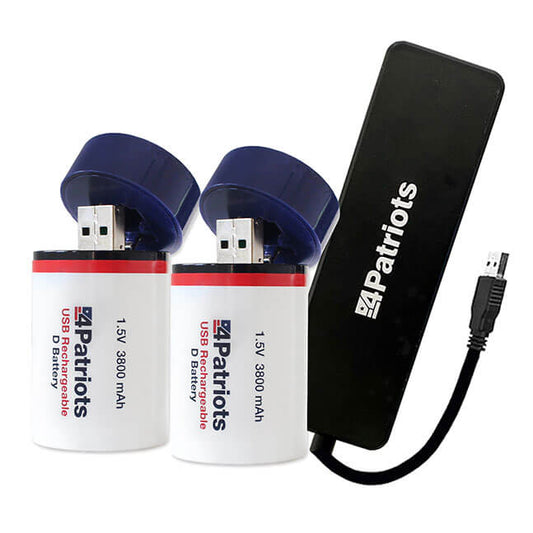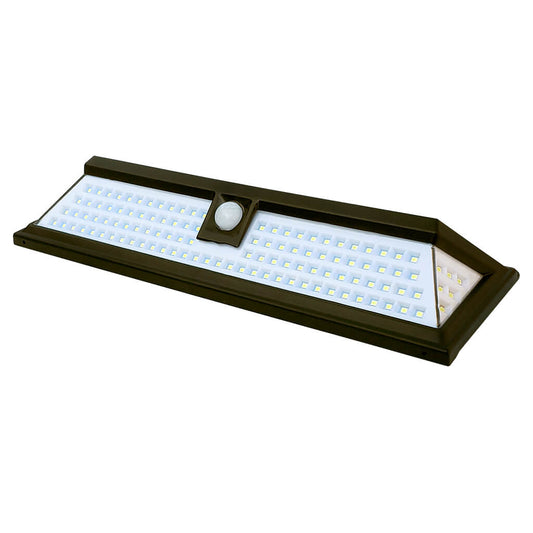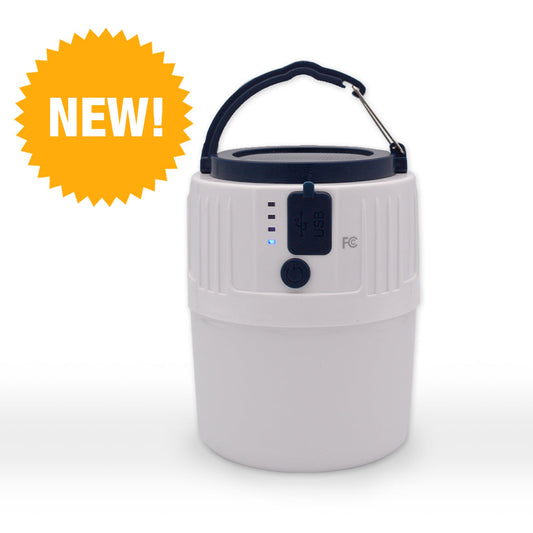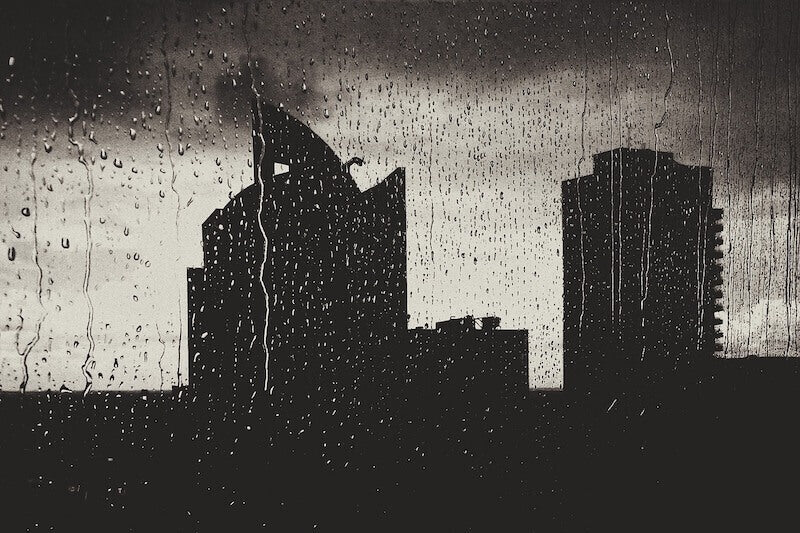
Do 2020 Hurricane Forecasts Mean More – and Longer – Power Outages?

The COVID-19 pandemic has dominated the news the past few months. I don’t see that changing anytime soon.
But we shouldn’t let our laser-focus on the coronavirus make us lose sight of something else. I’m referring to severe weather causing power outages.
Of particular concern is the predicted severity of the 2020 hurricane season. But even if you don’t live in an area prone to hurricanes, other storms can be equally devastating.
The common denominator is a blackout. Power almost always goes out for at least several hours. And sometimes outages last for days, putting peoples’ health at risk.
20 Named Storms Anticipated
A few weeks ago we learned 2020 could be a rough hurricane season. The updated news is not looking good.
Twenty named storms are predicted for the next few months. That’s according to a research team at Colorado State University (CSU). Including nine hurricanes and four major catastrophic hurricanes (Category 3-5).
The last time CSU researchers forecast this many storms was 2005. It became a record-breaking year for hurricanes, including Katrina.
We’ve already had six named storms in 2020. That’s a record for this early in the season.
Updated Predictions Spell Trouble
Now, it’s not all about the number of storms in a season. One Category 5 hurricane could potentially cause more damage than five tropical storms.
But the fact that so many storms are predicted for 2020 indicates a disturbing trend. And CSU researchers aren’t the only ones telling us this.
Forecasters predict an unusually active hurricane season. Mainly due to current and long-term conditions across the Atlantic Ocean.
And it’s very possible some of those storms could develop into major hurricanes.
Warmer Surface Temps Concerning
These conditions include well-above-average sea surface temperatures in the Atlantic.
And temperatures are expected to stay warm from August through October. Those are the prime hurricane season months.
Nearly all major storms over the past 15 years occurred during those months. Including Hurricanes Katrina (August 2005) and Sandy (October 2012).
Plus Hurricanes Matthew (October 2016) and Harvey (August 2017). As well as Irma (September 2017), Michael (October 2018) and Dorian (September 2019).
More Storms + Slower Blackout Response Times?
So far in 2020, some storms are forming farther north than usual. This is due to the warmer sea temperatures. In fact, Dolly gained strength farther north than any tropical storm on record.
Temperatures are warm enough for storms to form in the north. So, they’re likely to form with more regularity to the south.
Worse yet, now there is talk that the pandemic could slow response times to power outages. Which means people need to prepare for longer blackouts.
Several factors are involved. Some response teams may be short handed due to the virus. And travel limitations could stop help coming from other areas.
Due to social distancing, staging sites for responders will be spread out. That could limit their efficiency.
Self-Reliance Is Key
Now unfortunately, we can't do anything to control the weather. But we can prepare for it. And the best thing you can do for you and your family is to have a plan in place and supplies ready before the next one hits.
Here are the 7 must-have items for storm preparedness outside of food and water:
- Tactical flashlight: The best ones are lightweight yet durable. They can light your way in the dark and perform a number of other tasks.
- Rechargeable batteries: Don’t be left searching your kitchen drawers for a working battery. Have a set ready and charged.
- Power pack: When the electricity goes out, this might be your only way to charge the electronic devices you need. Including your phone.
- Multi-tool: A power outage is likely to leave you with a few things to fix. Having pliers, scissors, wire cutter, blade and other tools all in one will be convenient.
- First-aid Kit: Power outages also often result in minor injuries. A fully-stocked first-aid kit will help you treat them properly.
- Radio: Stay up to date on information about the storm using a weather radio.
- Solar-powered generator: Keep lights on, appliances running and electronic devices working with a portable generator. One you don’t have to rely on gas to run.
Be Prepared for the Worst
Extreme weather is not only becoming more frequent across the U.S – it's also becoming more intense. Add in the pandemic and slower power outage response times, and we are looking at a recipe for disaster.
That's why more and more Americans are taking matters into their own hands and preparing themselves for severe weather.
An obvious choice to help with power outages is to have a generator on hand.
But if that generator runs on gas, there could be a bigger problem than not having power.
That's why we recommend using a solar generator instead.
You can use it to run kitchen appliances. Power your personal or medical devices. Or light up a room with an LED light string... for weeks at a time.
There is no worry about running it inside your house because it does not produce fumes like a gas generator. And it recharges using only the power of the sun, so you don't have to worry about gas shortages either.
And it’s all available on an easy monthly payment plan.
Featured Products
- Regular price
- From $1,134.57
- Regular price
-
- Sale price
- From $1,134.57
- Unit price
- per
- Regular price
- $353.58
- Regular price
-
- Sale price
- $353.58
- Unit price
- per
- Regular price
- $3,545.70
- Regular price
-
$4,535.43 - Sale price
- $3,545.70
- Unit price
- per
- Regular price
- $3,548.54
- Regular price
-
$4,251.44 - Sale price
- $3,548.54
- Unit price
- per
- Regular price
- From $42.53
- Regular price
-
$170.11 - Sale price
- From $42.53
- Unit price
- per
- Regular price
- $3,548.54
- Regular price
-
- Sale price
- $3,548.54
- Unit price
- per
- Regular price
- $708.57
- Regular price
-
- Sale price
- $708.57
- Unit price
- per
- Regular price
- $41.18
- Regular price
-
- Sale price
- $41.18
- Unit price
- per
- Regular price
- $3,970.28
- Regular price
-
- Sale price
- $3,970.28
- Unit price
- per
- Regular price
- $42.53
- Regular price
-
- Sale price
- $42.53
- Unit price
- per
- Regular price
- $137.74
- Regular price
-
- Sale price
- $137.74
- Unit price
- per
- Regular price
- $7,098.51
- Regular price
-
- Sale price
- $7,098.51
- Unit price
- per
- Regular price
- $70.93
- Regular price
-
- Sale price
- $70.93
- Unit price
- per
- Regular price
- From $97.98
- Regular price
-
- Sale price
- From $97.98
- Unit price
- per
- Regular price
- $285.42
- Regular price
-
- Sale price
- $285.42
- Unit price
- per
- Regular price
- From $129.18
- Regular price
-
$184.53 - Sale price
- From $129.18
- Unit price
- per
- Regular price
- $1,418.57
- Regular price
-
- Sale price
- $1,418.57
- Unit price
- per
- Regular price
- $42.53
- Regular price
-
- Sale price
- $42.53
- Unit price
- per
- Regular price
- From $41.89
- Regular price
-
$44.01 - Sale price
- From $41.89
- Unit price
- per
- Regular price
- $183.18
- Regular price
-
- Sale price
- $183.18
- Unit price
- per
- Regular price
- From $38.34
- Regular price
-
$567.71 - Sale price
- From $38.34
- Unit price
- per
- Regular price
- $4,961.43
- Regular price
-
- Sale price
- $4,961.43
- Unit price
- per
- Regular price
- From $282.58
- Regular price
-
$291.81 - Sale price
- From $282.58
- Unit price
- per
- Regular price
- $141.93
- Regular price
-
- Sale price
- $141.93
- Unit price
- per
- Regular price
- $42.53
- Regular price
-
- Sale price
- $42.53
- Unit price
- per
- Regular price
- $12.77
- Regular price
-
$42.53 - Sale price
- $12.77
- Unit price
- per
- Regular price
- $141.93
- Regular price
-
- Sale price
- $141.93
- Unit price
- per
- Regular price
- $42.53
- Regular price
-
- Sale price
- $42.53
- Unit price
- per
- Regular price
- $85.13
- Regular price
-
- Sale price
- $85.13
- Unit price
- per
- Regular price
- $17.01
- Regular price
-
$42.53 - Sale price
- $17.01
- Unit price
- per
- Regular price
- $63.83
- Regular price
-
$63.83 - Sale price
- $63.83
- Unit price
- per
- Regular price
- $35.43
- Regular price
-
$70.93 - Sale price
- $35.43
- Unit price
- per
- Regular price
- $163.23
- Regular price
-
- Sale price
- $163.23
- Unit price
- per
- Regular price
- $268.38
- Regular price
-
- Sale price
- $268.38
- Unit price
- per
- Regular price
- $708.57
- Regular price
-
- Sale price
- $708.57
- Unit price
- per
- Regular price
- $85.13
- Regular price
-
- Sale price
- $85.13
- Unit price
- per
- Regular price
- $56.73
- Regular price
-
- Sale price
- $56.73
- Unit price
- per
- Regular price
- $85.13
- Regular price
-
- Sale price
- $85.13
- Unit price
- per
- Regular price
- $28.33
- Regular price
-
- Sale price
- $28.33
- Unit price
- per
- Regular price
- $141.93
- Regular price
-
- Sale price
- $141.93
- Unit price
- per
- Regular price
- $97.98
- Regular price
-
- Sale price
- $97.98
- Unit price
- per
- Regular price
- $20.26
- Regular price
-
$31.17 - Sale price
- $20.26
- Unit price
- per
- Regular price
- $212.93
- Regular price
-
- Sale price
- $212.93
- Unit price
- per
- Regular price
- $113.53
- Regular price
-
- Sale price
- $113.53
- Unit price
- per
- Regular price
- $56.73
- Regular price
-
- Sale price
- $56.73
- Unit price
- per
- Regular price
- $163.23
- Regular price
-
- Sale price
- $163.23
- Unit price
- per
- Regular price
- $56.73
- Regular price
-
- Sale price
- $56.73
- Unit price
- per
- Regular price
- $141.93
- Regular price
-
- Sale price
- $141.93
- Unit price
- per
- Regular price
- $35.43
- Regular price
-
- Sale price
- $35.43
- Unit price
- per
- Regular price
- $35.43
- Regular price
-
- Sale price
- $35.43
- Unit price
- per





